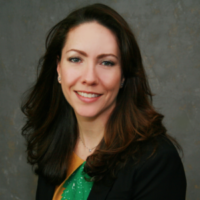In Recognition of OCD Awareness Week October 13-19, 2019 I am providing some education about OCD.
When people hear “OCD” they often think of someone who washes their hands over and over, or someone who needs things neat and organized. These can certainly be part of OCD for some people, but OCD can take many forms that may be very different from this and often much more complex and debilitating
OCD stands for Obsessive-Compulsive Disorder. As indicated in its name OCD is made up of two kinds of symptoms: Obsessions and Compulsions.
Obsessions are thoughts that get stuck repeating in someone’s head that they try to get rid of. These thoughts are intrusive and persistent, and they cause distress. Obsessions often make the person worry that something bad will happen or make them think something feels wrong. Obsessions can have to do with any topic, not just the ones people who don’t know much about OCD more commonly think of, such as germs or counting.
Compulsions are repetitive acts that people do to help themselves feel better. These might be single actions, complex routines and rituals the person feels the need to do, or even things they do in their head. Checking, counting, saying certain things, and trying to make things perfect are examples of compulsions. Children often heavily involve their parents in their compulsions, needing their parent to say certain things or do certain things in a very specific way in order to feel okay. People with OCD believe the compulsions are the only way to reduce their distress or to stop their fear from coming true.
To be diagnosed with OCD according to the DSM-5 you must experience either obsessions, compulsions, or both. The symptoms must be time-consuming, or cause significant distress or impairment in functioning.
OCD is very impairing for the person experiencing it. OCD can consume a tremendous amount of time and energy (often hours a day), leaving the person depleted. It can distract from and/or interfere with getting places on time, finishing tasks, learning in the classroom, being mentally or physically present with family and friends, and participating in extracurricular activities.
Many kids and teens with OCD with whom I have worked express frustration with people who say things like “I’m so OCD” when that person likes things clean or neat. This type of statement can feel very invalidating for someone struggling with OCD. Comments like this make it harder for that person with OCD to consider talking about what they are going through with others. Imagine being so uncomfortable that you can do nothing else until you touch a door knob 4 times with your left index finger, then say “now the day will be okay” two times, then doing it over and over again because you’re not sure if you touched the door knob the right number of times, and believing that if you do not get it right then something terrible will happen to your mother that day. Imagine how hard it would be to get ready for school in the morning. That is just a glimpse of what OCD is like, which is a far cry from just liking things neat. People without OCD can be supportive by being mindful of the language they use since you may not know if the person next you is struggling with OCD.
There is help out there, and OCD can be treated. OCD is most often treated using a form of Cognitive Behavioral Therapy called Exposure and Response Prevention (ERP). ERP teaches people to gradually face their OCD without engaging in the obsessions and compulsions. This is very tough to do on your own, but can be easier with the help of a trained mental health professional. OCD is like a brain trick making people think bad things will happen if certain things are not thought or done, and ERP helps you take back charge over your thinking, feelings, and actions. In order for ERP to be effective it takes time, dedication and practice in and outside of the therapy sessions. Friends and family can help by being sources of support, and by not participating in the OCD rituals.
Even with ERP treatment sometimes progress can be slow. Some people find it helpful to also see a psychiatrist for medication to assist with tackling their OCD. Make sure the psychiatrist you choose has experience treating people with OCD.
OCD Awareness Week October 13-19, 2019
This year for OCD Awareness Week the International OCD Foundation (IOCDF) is inviting people to participate in an awareness raising campaign involving anyone, whether they OCD or not, posting videos of themselves facing their fears (#OCDweek #Faceyourfear) to show solidarity and build understanding of how challenging it can be to face your fears. Details about events happening for OCD Awareness Week can be found at https://iocdf.org/programs/ocdweek/.
Websites with additional resources:
International OCD Foundation: https://iocdf.org/
Anxiety and Depression Association of America: https://adaa.org/understanding-anxiety/obsessive-compulsive-disorder-ocd
Association for Behavioral and Cognitive Therapies: http://www.abct.org/Information/?m=mInformation&fa=fs_OBSESSIVE_COMPULSIVE










